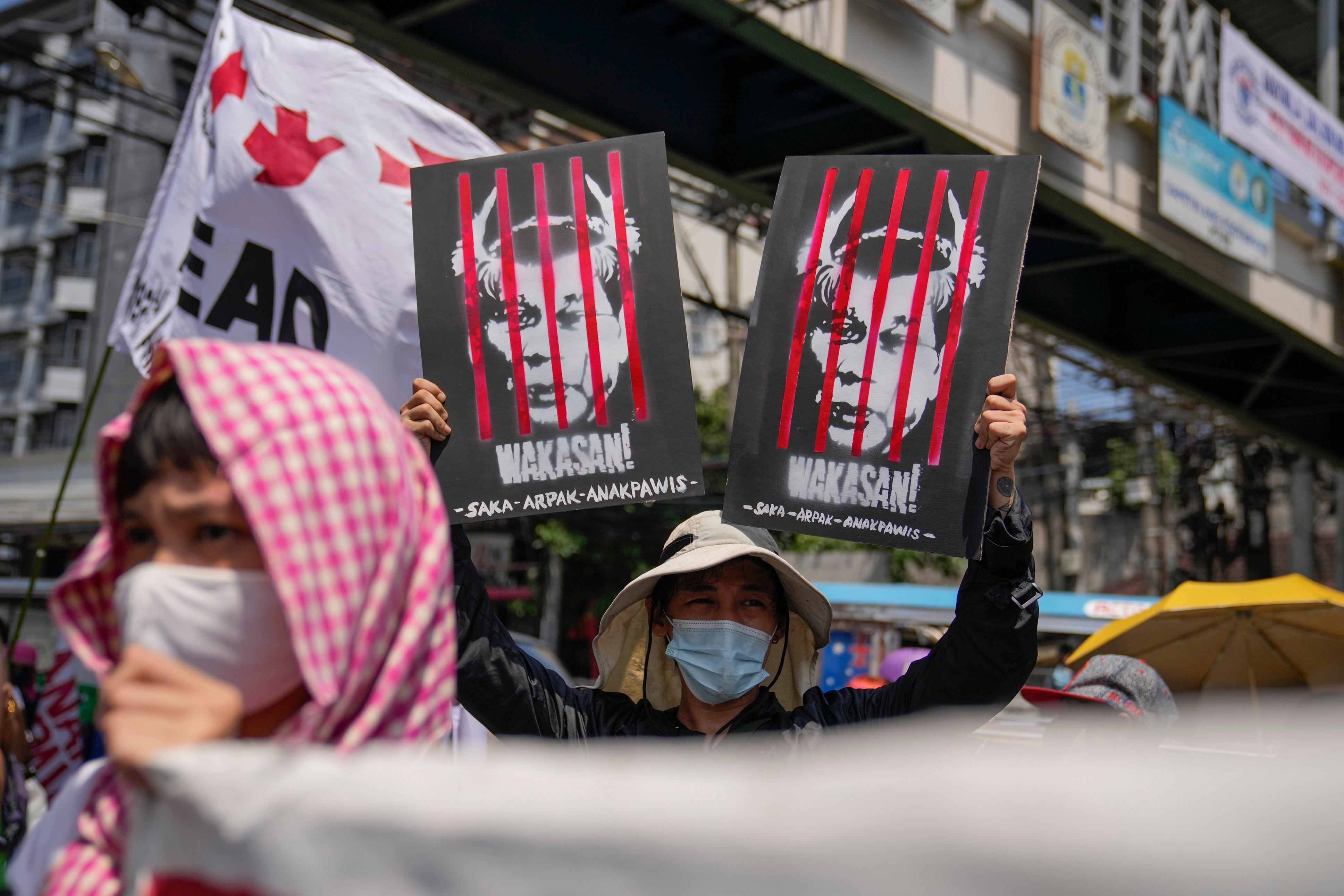Philippines: ICC Should Continue ‘Drug War’ Investigation

(New York) – The International Criminal Court prosecutor should seek to proceed with his office’s investigation into alleged crimes against humanity related to unlawful killings in President Rodrigo Duterte’s “war on drugs” in the Philippines, Human Rights Watch said today. On November 10, 2021, the Philippine government requested a deferral of the ICC’s investigation under the principle of complementarity, claiming that it had begun its own investigations into cases of extrajudicial killings attributed to the police during “drug war” operations.
The Philippine government has not responded to a November 10 letter from Human Rights Watch seeking details about the government’s claim that it was investigating police involvement in the killings. Philippine rights groups have found the number of pending investigations grossly inadequate to address the scale of the killings, and the government has yet to bring a single indictment. “The Philippine government’s request for the International Criminal Court prosecutor to defer its investigation while the authorities conduct their own is a transparent delaying tactic to protect officials responsible for mass killings,” said Brad Adams, Asia director at Human Rights Watch. “The ICC prosecutor should seek to resume its official investigation so that justice for victims isn’t further delayed.” In September, ICC judges authorized opening an investigation into crimes committed in the Philippines related to the “drug war” killings from November 2011 to June 2016, when large numbers of extrajudicial killings occurred in Davao City while Duterte was mayor, and up to March 19, 2019, the date that the Philippines’ withdrawal from the ICC’s Rome Statute took effect. Of the thousands of deaths in the “war on drugs,” the Philippine Department of Justice said it had reviewed only 52 cases for possible criminal liability and would consider filing criminal charges against the police officers involved after further investigation and “case build-up” by the National Bureau of Investigation. On November 18, the ICC prosecutor, Karim Khan, notified the court of the Philippines’s deferral request. Under the Rome Statute, should the prosecutor challenge the deferral, then the court will rule on the matter. Under the complementarity proviso of the Rome Statute, the tribunal can only investigate allegations if a country does not conduct genuine proceedings relevant to crimes that could otherwise be prosecuted before the court. On November 23, the Office of the Prosecutor asked the Duterte administration for information substantiating its investigations.
The government has yet to publicly respond to the request and has reiterated its argument that the ICC does not have jurisdiction over the Philippines. However, the court retains jurisdiction with respect to the alleged crimes and the state’s withdrawal cannot be applied to deny the court’s jurisdiction retroactively. Philippine rights groups have called the Department of Justice review misleading and “grossly insufficient,” and said that it exempts Duterte from scrutiny. In its November 10 letter to Justice Secretary Menardo Guevarra, Human Rights Watch sought more information about the government’s investigation, including the Philippine National Police units involved in killings and officers implicated. Human Rights Watch also asked whether the police or the Justice Department considered investigating the thousands of cases that were not covered by the police’s Internal Affairs Service’s investigation, whose preliminary findings were the basis for the Justice Department’s review.
The government has said that more than 6,200 people have been killed by the police in anti-drug operations since Duterte took office in 2016. Estimates from domestic and international groups put the number between 8,000 and 30,000. Yet in its letter to the ICC, the government says that it has investigated 52 cases. None of the 154 police officers in these cases have been criminally charged. Before the ICC opened its investigation, the Philippine government refused to cooperate with institutions such as the Philippines’ Commission on Human Rights to investigate these killings; refused to disclose official documents about the “drug war”; ridiculed and threatened the United Nations and other international bodies to keep them from conducting any investigation; and publicly stated they would deny access to ICC investigators. Duterte himself also pledged to protect law enforcers implicated in the “drug war” killings, telling them, for example, to “kill 1,000 and I will protect you.” “The Duterte administration has never been serious about the ICC’s accountability process, evident most recently in its wholly unwarranted request for a deferral of the investigation,” Adams said. “In the meantime, the ‘drug war’ killings go on, the victims’ families continue to grieve, and those responsible remain free.”.
Read the full article at the original website
References:
- https://www.hrw.org/topic/international-justice
- https://www.hrw.org/asia/philippines
- https://www.icc-cpi.int/RelatedRecords/CR2021_10546.PDF
- https://www.hrw.org/sites/default/files/media_2021/12/Letter%20to%20Secretary%20Guevarra%20re%20DOJ%20review%20of%20anti-drug%20campaign%20cases.pdf
- https://www.hrw.org/about/people/brad-adams
- https://www.icc-cpi.int/Pages/record.aspx?docNo=ICC-01/21-12
- https://www.hrw.org/news/2021/06/14/icc-one-step-closer-probe-philippines-murderous-war-drugs
- https://www.icc-cpi.int/Pages/item.aspx?name=pr1371
- https://www.hrw.org/report/2017/03/02/license-kill/philippine-police-killings-dutertes-war-drugs
- https://cnnphilippines.com/news/2021/10/20/DOJ-drug-war-review-report-52-cases.html
- https://newsinfo.inquirer.net/1504546/doj-drug-war-review-killer-cops-had-it-easy
- https://www.cnnphilippines.com/news/2021/11/9/NBI-case-buildup-drug-war-deaths.html
- https://www.pna.gov.ph/articles/1160434
- https://www.icc-cpi.int/Pages/item.aspx?name=pr1628
- https://www.pna.gov.ph/articles/1160380
- https://www.icc-cpi.int/Pages/item.aspx?name=2021-09-07-icc-prosecutor-statement-philippines
- https://newsinfo.inquirer.net/1518611/flag-appeals-icc-halt-of-drug-war-probe
- https://cnnphilippines.com/news/2021/10/21/FLAG-Diokno-hits-drug-war-review-DOJ.html
- https://newsinfo.inquirer.net/1522055/icc-told-ph-probe-of-drug-war-leaves-duterte-untouched
- https://newsinfo.inquirer.net/1525920/drug-war-death-toll-as-of-october-2021-at-6215-over-315000-arrested-pdea?utm_campaign=News%20and%20updates%20on%20human%20rights%20in%20the%20Philippines&utm_medium=email&utm_source=Revue%20newsletter
- https://www.hrw.org/news/2021/10/04/duterte-worried-about-icc-he-should-be
- https://www.rappler.com/nation/181519-duterte-order-pnp-chr-refuse-share-case-folders/
- https://www.rappler.com/nation/193474-calida-refuses-submit-drug-war-documents-supreme-court/
- https://www.rappler.com/nation/187899-duterte-threat-slap-un-rapporteur-callamard/
- https://www.reuters.com/world/asia-pacific/philippines-will-not-cooperate-with-icc-probe-war-drugs-spokesperson-2021-09-16/
- https://www.philstar.com/headlines/2017/07/12/1718906/duterte-repeats-promise-protect-cops-following-his-orders
- https://www.rappler.com/voices/newsletters/266341-kill-1000-and-i-will-protect-you-duterte/
